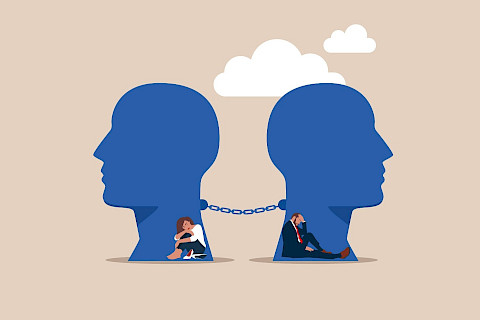
Heavy M.E.T.A.L Group
Call David: 0401 766 877
- Home
- About Us
- Services
- Bookings
- Resources
- Contact Us
Heavy M.E.T.A.L Group
Call David: 0401 766 877

A co-dependent relationship is an unhealthy partnership where one person excessively relies on the other to fulfil their emotional, psychological, or physical needs. This dynamic often results in an imbalanced relationship, with one partner becoming overly reliant on the other, detrimental to self-worth and overall well-being. Co-dependent relationships are also characterised by power and control issues, which can escalate into abusive behaviours. In this essay, we will explore the concept of co-dependency, its adverse impacts on self-worth, the role of power and control in these relationships, and how to recognise and address co-dependent tendencies. Furthermore, we will discuss how a Men's Behaviour Change Program, such as the Heavy M.E.T.A.L. Men's Behaviour Program, can assist couples trapped in co-dependency.
Understanding Co-dependency
Co-dependency can be traced back to childhood experiences and family dynamics. It often emerges when a person grows up in a dysfunctional family where emotional needs are unmet, leading to unhealthy coping mechanisms. The term "co-dependent" was initially used to describe the enabler in a relationship with an addict. However, it has since evolved to encompass a broader range of unhealthy relationships characterised by excessive reliance on another person for emotional support and validation.
A co-dependent relationship typically involves one person (the "caretaker") who feels responsible for the well-being of the other (the "dependent"). The caretaker may derive their sense of self-worth from being needed by the dependent, while the dependent comes to rely on the caretaker for their emotional needs. This dynamic creates a cycle of unhealthy behaviours where both partners feel trapped and powerless to change the situation.
Power and Control Issues in Co-dependent Relationships
Power and control issues often arise in co-dependent relationships as one partner seeks to maintain dominance over the other. Power and control can manifest in various ways, such as manipulation, emotional blackmail, and even physical aggression. Power and control behaviours can become abusive when they lead to emotional or physical harm, further exacerbating the already unhealthy dynamics of co-dependency.
The dependent partner may use power and control tactics to meet their needs. At the same time, the caretaker may resort to similar behaviours to maintain their sense of self-worth and identity within the relationship. This cycle of power and control can be challenging to break, as both partners become entrenched in their roles and the unhealthy patterns that define their relationship.
Negative Impacts on Self-worth
Recognising and Addressing Co-dependent Tendencies
The first step to breaking free from a co-dependent relationship is to recognise the unhealthy patterns and take steps to address them. Breaking free may involve
In summary, co-dependent relationships are characterised by one partner excessively relying on the other for emotional, psychological, or physical support. This unhealthy dynamic often stems from childhood experiences and family dynamics where emotional needs are unmet. Co-dependency can negatively impact self-worth by causing a loss of identity, low self-esteem, emotional exhaustion, unhealthy boundaries, and increased vulnerability to abuse. Power and control issues are significant in these relationships, often escalating into abusive behaviours. Individuals should develop self-awareness, establish healthy boundaries, build self-esteem, and seek professional help to address co-dependent tendencies. Men's Behaviour Change Programs, such as the Heavy M.E.T.A.L. Men's Behaviour Program, can play a crucial role in helping couples break free from co-dependency by providing tools and resources to promote emotional understanding, effective communication, and healthier relationship dynamics.